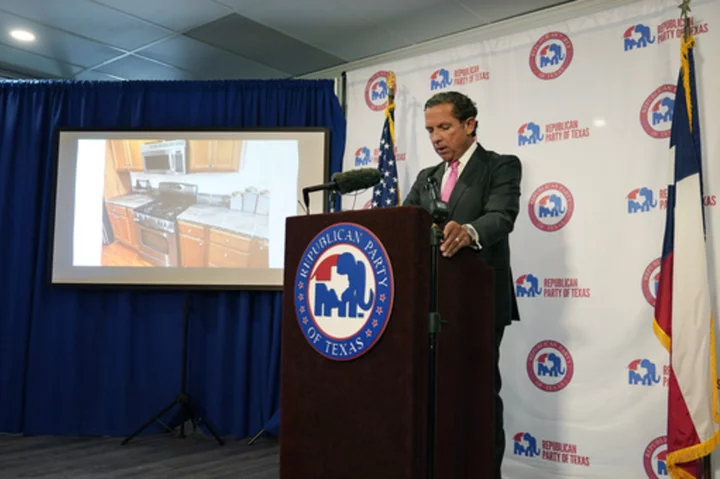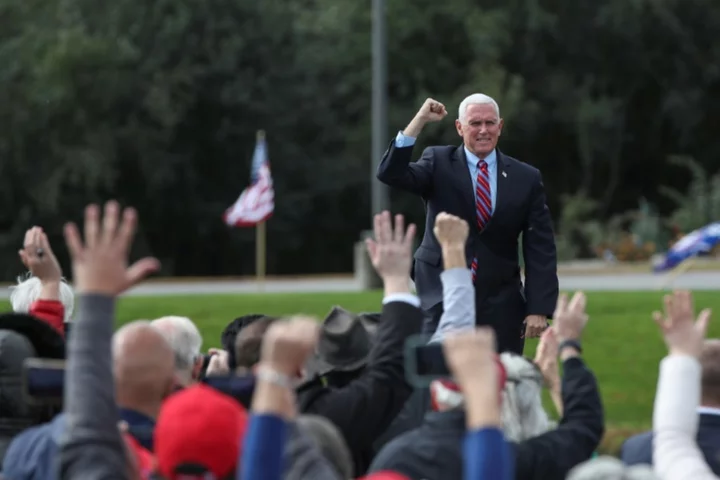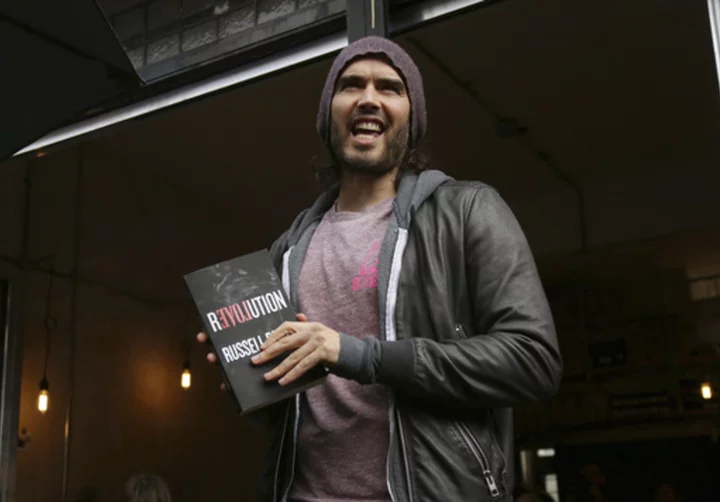Former President Donald Trump has lost the first of several attempts to throw out a lawsuit that seeks to block him from the 2024 presidential ballot in Colorado, based on the 14th Amendment's prohibition against insurrectionists holding public office.
Colorado District Judge Sarah Wallace this week rejected Trump's bid to get the lawsuit dismissed on free-speech grounds.
The former president still has several pending challenges against the case, which was initiated by a liberal government watchdog group.
A trial to determine Trump's eligibility is set for October 30, if the case reaches that stage. Colorado election officials say there's a "hard deadline" to resolve the dispute before January 5, when the ballot printing process begins for the March 5 Republican primary.
A post-Civil War provision of the 14th Amendment says American officials who take an oath to uphold the Constitution are disqualified from future office if they "engaged in insurrection or rebellion" or if they have "given aid or comfort" to insurrectionists. But the Constitution does not spell out how to enforce this ban, and it has been applied only twice since the late 1800s, when it was used against former Confederates.
In a 22-page ruling, Wallace said she wasn't swayed by Trump's argument that the lawsuit seeks to improperly restrict his rights to participate in the political process.
"The Court has no difficulty concluding that it is to the benefit of the general public that, regardless of political affiliation, only constitutionally qualified candidates are placed on the ballot," Wallace wrote.
She added that resolving the question of Trump's eligibility is particularly important because he is seeking "the highest office in the country" and "the disqualification sought is based on allegations of insurrection against the very government over which the candidate seeks to preside."
Trump denies wrongdoing and says the candidacy challenges are meritless. The Trump campaign did not immediately respond to a request for comment on the ruling.
Unprecedented cases
Citizens for Responsibility and Ethics in Washington, or CREW, filed the Colorado lawsuit on behalf of a group of Republican and unaffiliated voters in the state. This is one of three major challenges against Trump's eligibility for the 2024 ballot -- similar cases are pending in Minnesota and Michigan, where a different group filed lawsuits.
CREW's chief counsel Donald Sherman said in a statement that the group is "pleased with the Court's well-reasoned and very detailed order, leading to a thorough decision, and look forward to presenting our clients' case at trial."
The group sued Trump and Colorado Secretary of State Jena Griswold, who oversees elections in the state. Griswold, a Democrat, previously told the judge that she doesn't have a position on Trump's eligibility and would comply with the judge's final decision.
However, Griswold has said in court filings that she "believes that Mr. Trump incited the insurrection" and therefore wants the judge to determine if the 14th Amendment's insurrectionist ban can be applied through Colorado state law, because she has "sworn a solemn oath to uphold the U.S. Constitution and to effectuate its requirements."
In recent months, a growing and bipartisan array of constitutional scholars and former jurists have thrown their support behind the theory. But experts on both sides have also expressed concern that blocking Trump from the ballot could lead to a backlash and would deprive voters the chance to decide for themselves who should be president.
Legal scholars are also split on how the 14th Amendment could be applied to Trump and how the ban would be implemented -- whether by state officials, Congress or a court -- given the existing ambiguities in the law. Many expect the Supreme Court will ultimately weigh in on the matter in some fashion, with the 2024 election approaching.
This story has been updated with additional details.









